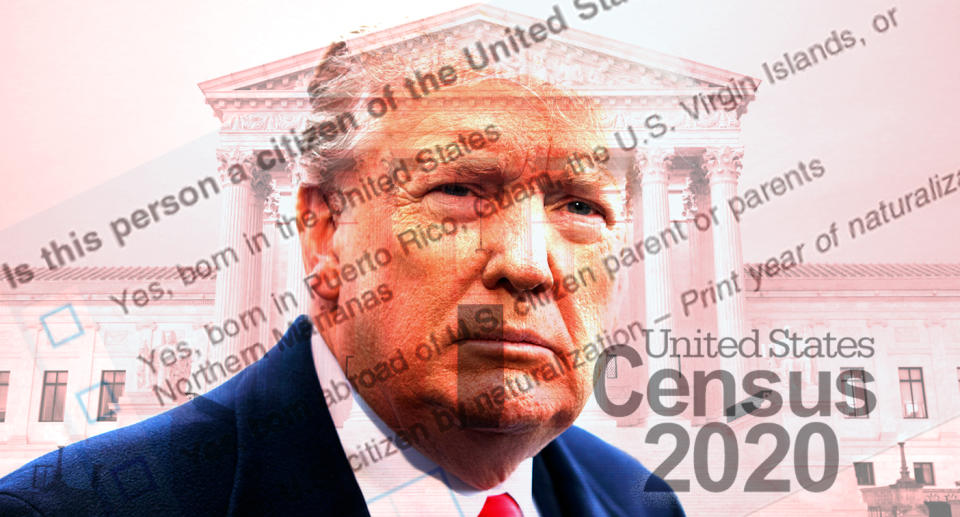Trump calls battle over census citizenship question 'ridiculous'
While claiming he has not been “overly involved in the census controversy,” President Trump called the question of whether to allow a question about citizenship on the 2020 census forms “totally ridiculous.”
“When you have a census and you’re not allowed to talk about whether somebody’s a citizen or not, that doesn’t sound so good to me,” Trump responded to a question from a reporter after meeting with Polish President Andrzej Duda. The Supreme Court is expected to rule soon on a challenge to adding the question.
“Can you imagine you send out a census and you’re not allowed to say whether or not a person’s an American citizen?” Trump asked Duda during the news conference. “In Poland, they’d say they’re either Polish or they’re not.”
“I don’t want to get you in this battle, but it's ridiculous,” he continued. “I think it’s totally ridiculous that we would have a census without asking, but the Supreme Court is going to be ruling on it soon.”
Trump added: “I think when the census goes out you should find out whether or not — and you have the right to ask — whether somebody is a citizen of the United States.”

When Commerce Secretary Wilbur Ross announced the addition of a citizenship question, which he said had been requested by the Justice Department, he said it would ensure an accurate count of the voting-age population and help enforce the 1965 Voting Rights Act. The question was part of the census in the past but has not been asked since 1950.
But opponents have called that justification a cover for the political goal of discouraging minorities and immigrants from participating in the count, diluting their political power. Newly discovered documents revealed the motivation for adding the citizenship question to give “Republicans and non-Hispanic Whites” a political advantage.
To “determine the real reason Secretary Ross added the citizenship question,” the House Committee on Oversight and Reform subpoenaed Ross and Attorney General William Barr in April to provide documents about the decision. After both officials failed to meet the committee’s nine-week deadline to hand over information, the panel prepared to vote on a resolution to hold them in contempt. But Trump on Wednesday asserted executive privilege over the requested documents. Months earlier he said the census would be “meaningless” if the question — “Is this person a citizen of the United States?” — is not included.
For over 200 years, the decennial head count of every person living in the U.S. — citizens and noncitizens — has helped states determine how funds, now hundreds of billions of dollars, are allocated according to population size. The 2020 census, which begins April 1 and ends that summer, before congressional reapportionment and redistricting, also helps determine the allocation of House of Representatives seats and Electoral College votes.
Civil rights advocates have argued that the question, which hadn’t been tested for its potential impact on census response rates, amounts to surveillance of vulnerable communities and would hurt states with large immigration populations, such as California, New York, Texas and Florida. They were among 17 states that joined the suit against the Department of Commerce to have the question discarded.
And beyond an undercount of Latinos and immigrant communities, opponents to the questions worry about seemingly unrelated consequences, such as the impact on businesses that rely on population data to decide where to locate, which in turn affects local employment.
A ruling is expected later this month as the deadline for printing census forms approaches. Legal observers say the justices are likely to allow the question to be added.
_____
Read more from Yahoo News:



